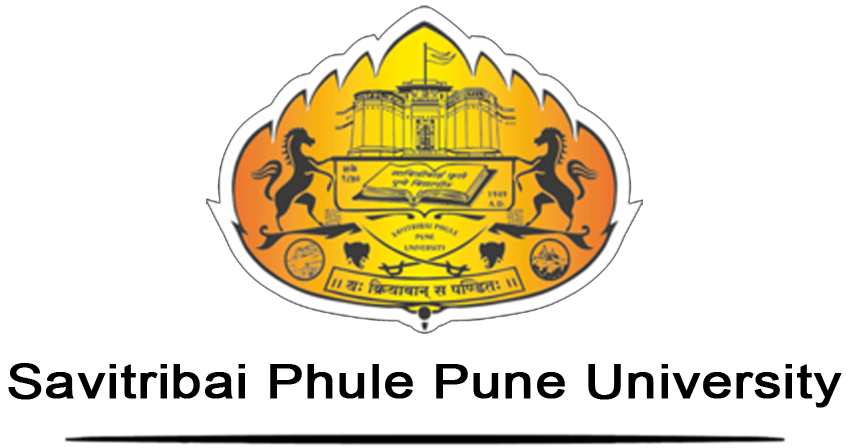Course Objective
Prepare students for an in-depth comprehensive knowledge of the underlying technologies like Electronics, Computer Science, Energy Conversion & Management, Automatic Controls, Telecommunications & Networks involved in embedded systems along with Artificial Intelligence by focussing both on practical and theoretical aspects. On the practical front, focus on developing system approach through integrated projects to master specific methods and tools applied in the aeronautics, space, automobiles, and multimedia domains.
Course Structure
- Duration: 7 months (990 hours) full-time
- Classes: Monday to Friday (Lecture: 2 hrs, Lab work: 5 hrs). Saturday will be available for additional lab work.
- Industry standard project of 3 months duration will be an integral part of this course.
Eligibility
B.E/B.Tech (Electronics,E&TC, Instrumentation), M.Sc. (Electronics) or equivalent degree
Application Form & Entrance Exam Fee
Rs.500/- to be paid online
Account Name: INTEGRATED CIRCUIT AND INFO TECH PVT LTD
Account Number: 53211010006135
IFSC Code: CNRB0015321
Bank: Canara Bank
Bank Name: Shivajinagar, Pune 411005
Course Fee
Rs 97,000/-
This course fees is Non Refundable, to be paid in two installments.
- First installment of Rs. 10,000/- to be paid at the time of confirmation of the admission.
- Second installment of Rs. 87000/- to be paid before commencement of the course.
By Demand Draft drawn on any nationalized bank in favor of ‘ICIT Pvt. Ltd., Pune’, payableat Pune, or through RTGS/online payment.
| Event | Date |
|---|---|
| Last Date of online Registration | 21st August 2025 |
| Common Entrance Test Syllabus | 24th August 2025 |
| Personal Interview and Concealing | 25th August 2025 |
| Commencement of course | 12th September 2025 |
Reservation : As per rules of Government of Maharashtra.
Course Syllabus
C++ Programming and Data Structure Algorithm
Pre-requisites: Basic understanding of computers and basic programming knowledge.
|
Embedded Operating System, Linux Device Driver & RT Linux
Pre-requisites:
Basic understanding of an Operating System.
Embedded Operating System:
- Introduction to Embedded Operating Systems
- Anatomy of an Embedded Linux System: Bootloader, Kernel, Root File System, Application
- Process Management
- Interprocess Communication & Synchronization
- Memory Management
- I/O Sub-system & Embedded File Systems
- POSIX Thread Programming
- POSIX Semaphores, Mutexes, Conditional Variables, Barriers
- Message Queues
- Shared Memory
- Debugging and Testing of Multithreaded Applications
- Socket Programming
Embedded System Linux Device Drivers:
- The Embedded Linux Software Eco-System
- Linux Kernel Modules and Module Programming
- Char Device Drivers
- Kernel Internals: Dynamic Memory Allocations, Handling Delays, Timers, Synchronization, Locking, I/O Memory and Ports, Interrupts, Deferred Executions, Driver Debugging Techniques
- USB Device Driver
- Drivers for GPIO, I2C, and SPI
Real Time Operating System:
- Introduction to Real-Time Concepts
- RTOS Internals & Real-Time Scheduling
- Performance Metrics of RTOS
- Task Specifications
- Schedulability Analysis
- Application Programming on RTOS
- Porting of RTOS
- Configuring RTOS
- Building RTOS Image for Target Platforms
Microcontroller programming and Interfacing
Pre-requisites:
Must have knowledge of C++ Programming.
Overview:
- Microcontrollers, Microprocessors, and SoC
- RISC vs. CISC
- Harvard vs. Princeton Architectures
- Overview of Computer Architecture
- Embedded Memories
- Timers/Counters
- UART, SPI, PWM, WDT
- Input Capture, Output Compare Modes
- I2C, CAN
- LED, Switches
- ADC, DAC
- LCD, RTC
- Bus Standards (USB, PCI)
- Programming in Assembly and Embedded C
- Overview of ARM Architecture and Organization
- Introduction to Cortex-M Architecture
- Programming Model and Instruction Set Architecture
- Alignment and Endianness
- Register Access, State, Privilege, Stack, System Control Block
- Power Modes
- Memory Model
- NVIC
- Exception Handling
- Bit Banding
- Peripheral Programming
- SVCall, SysTick, PendSv, MPU, DMA
- Mixing Assembly and C Programs
- Introduction to CMSIS & CMSIS Components
- Overview of Cortex A & R Architectures
- Introduction to Multi-Core Embedded Systems
- Introduction to FPGA
Artificial Intelligence in Embedded System Design
Pre-requisites:
Must have completed (Microcontroller Programming & Interfacing)
Programming Crash Course:
- Python:
- Basics
- Loops
- Blocks and Statements
- Lists
- Sets
- File I/O
- Modules and Functions
- OOPs concepts
- Keras:
- Introduction
- Installation and Configuration
- TensorFlow:
- Tensors
- TensorFlow Installation
- TensorFlow basics
Machine Learning:
- Introduction
- Supervised Machine Learning:
- Data gathering
- Data Cleaning
- Data Labeling
- Build ML models using Python
- Training and Testing the models
- Algorithms:
- Linear and Nonlinear classification
- Regression Techniques
- Decision Trees
- Oblique trees
- Random Forest
- Bayesian analysis and Naive Bayes classifier
- Algorithm Performance
- Unsupervised Machine Learning
- Text Classification using Python and NLTK / Naive Bayes
Deep Learning:
- Introduction to Neural Networks:
- Deep Neural Networks
- Perceptrons
- RNN, CNN, LSTM
- Deep Belief Network
- Semantic Hashing
- Building Deep Learning Models / Neural Networks using Keras and TensorFlow
- Testing and Training the models
- Convolutional Neural Networks
AI in Automobile Industry:
- Introduction
- Applications of AI in Automobile Industry:
- Computer Vision
- NLP
- Autonomous Driving
- Sensors
- Cameras
- Gathering and Processing Data from Devices / Sensors
- Vehicle Control Systems
- Decision Making
- Automatic Navigation
Model Based Development using MATLAB Simulink
Pre-requisites:
Must have completed (C++ Programming and Data Structure Algorithm), (Embedded OS, Linux Device Drivers, & RT Linux), (Microcontroller Programming & Interfacing), and (Embedded System Hardware Design & Project).
Introduction to Model-Based Development:
- Model Creation using Simulink
- Stateflow
- Control Systems in Automotive Engineering
- Requirements Analysis and System Design
- Model Design Technique
- Optimization and Code Generation for Automotive Embedded Systems
- MIL Testing
- SIL Testing
- Modified Condition/Decision Coverage
Embedded System Hardware Design & Project
Pre-requisites:
Must have completed any 4 Certificates of CCDESD101 to 105
Study of Data Sheets:
- Hardware device interface with Microcontroller will require studying data sheets of the device
- Selection of components
- Power supply design
Microcontroller-Based Application:
- Hardware design as per specification
Study of Automotive Protocols:
- CAN, LIN in detail and implementation
Introduction to MATLAB:
- Model development
- SIMULINK
Case Study:
- Standard chips such as:
- RTC chip DS1307
- EEPROM 24LC256
- Temperature Sensor TC74
- Based on I2C, SPI protocols


